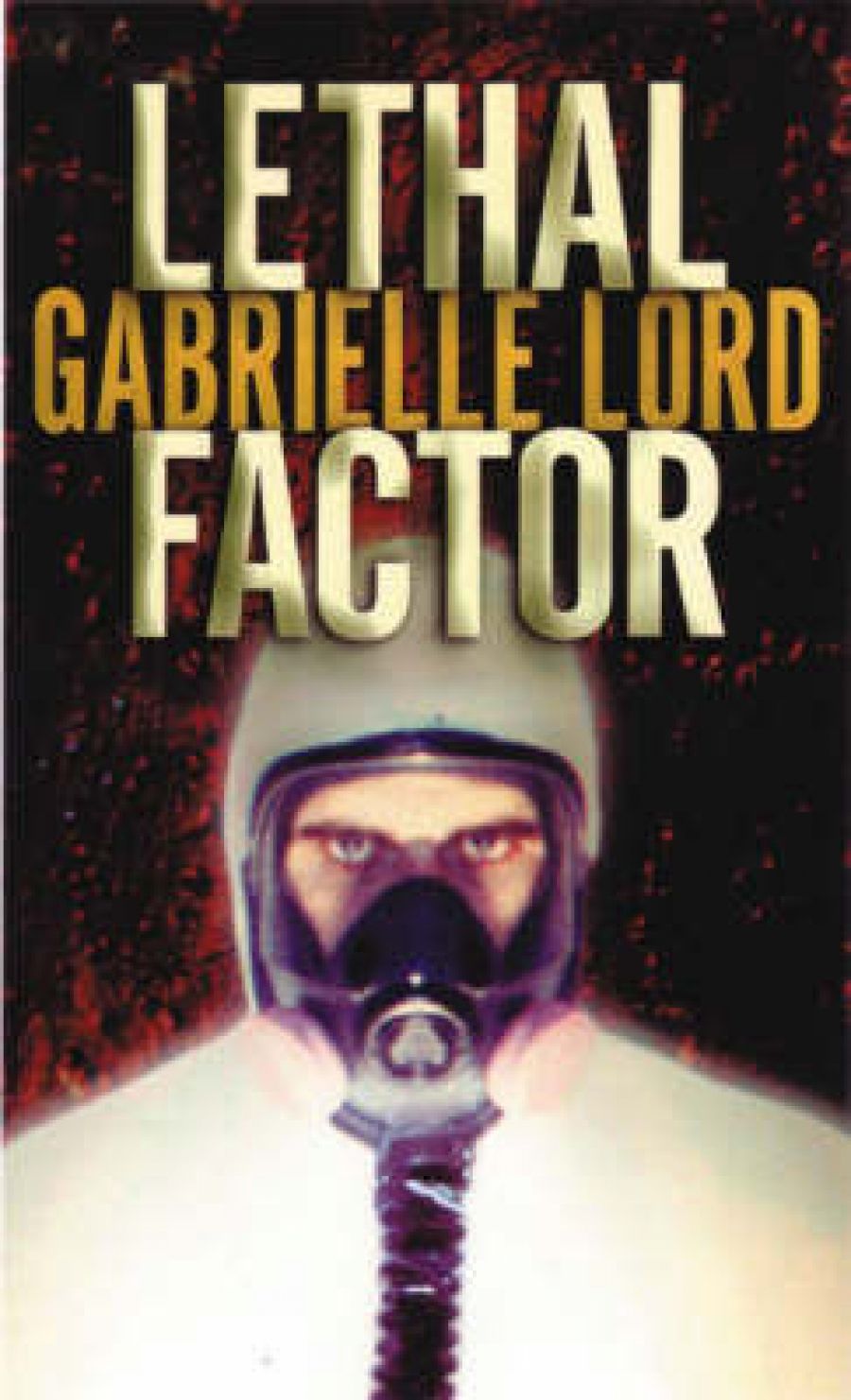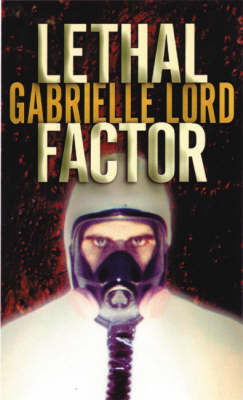
- Free Article: No
- Contents Category: Fiction
- Review Article: Yes
- Article Title: Familial Thrills
- Online Only: No
- Custom Highlight Text:
This is a crime novel written largely in headlines. Lethal Factor is replete with references to such choice items as bio-terrorism, the conflict in the Balkans, paedophilia, Nazi war criminals, strange goings-on in the Catholic Church and academic plagiarism. Such manifold topicality is no guarantee of success in a thriller, and the particular merit of Lethal Factor lies not in its wide coverage of current affairs but rather the attention it pays to the detail of everyday life and relationships.
- Book 1 Title: Lethal Factor
- Book 1 Biblio: Hodder, $29.95 pb, 317 pp
- Book 1 Cover Small (400 x 600):

- Book 1 Cover (800 x 1200):

Gabrielle Lord’s protagonist Jack McCain lives in Sydney and plies his trade as a forensic examiner in Canberra. He is middle-aged, world-weary and occasionally buffeted by the emotional turbulence that might be expected to affect a man with a wayward teenage daughter, an unstable younger girlfriend and a vengeful ex-wife. ‘With some women,’ he reflects, ‘there is just no winning and the only safe thing is not to get involved at all.’ Here, we are given to understand, speaks the voice of experience.
The domestic turmoil in McCain’s private life is exacerbated by difficulties at work. Suddenly, he is confronted by two equally baffling murder cases. The first involves the use of anthrax to kill a scientist; the second follows the slaying and ritualised mutilation of a Croatian nun. Lord thus draws on two of the biggest news stories of the last few years – the war in the Balkans and the anthrax attacks that occurred in the US one week after September 11 – and fixes them firmly within the Australian suburban quotidian.
Lethal Factor is self-consciously topical in terms of protagonist as well as content. The forensic examiner is a type of investigator currently popular in crime fiction and television. Once a minor figure in crime fiction – in keeping with the relatively undeveloped state of the science itself – the forensic examiner has come into its own in recent times. It is one area of the genre dominated by female characters, most notably Patricia Cornwell’s Dr Kay Scarpetta. Television has given us Dr Jane Halifax (Halifax f.p.) and Professor Sam Ryan (Silent Witness). No longer a mere cog in the machinery of investigation, the forensic examiner can now be fully engaged personally as well as professionally in her work, and may even solve the crime. However, the extent to which backroom girls and boys such as Scarpetta and McCain become involved with the suspect in the murder has a cost: it can too easily take crime fiction outside its accustomed place in the (just about) plausible. The spirit of the age demands that science supply an explanation for all the mysteries of life, but the interesting thing about murder, from a literary point of view, is not just how it is committed but why.
Forensics itself can only get you so far. McCain grumbles that, despite all the advances in his field of science, the job is not getting any easier: ‘The bad guys learn from cop shows like CSI how not to leave traces.’ McCain appears competent at his job but is frequently distracted from the task at hand. The treatment of the procedural aspects of his work seems somewhat desultory. For instance, the technical aspects of anthrax itself, whose Latin name is bactillus anthracis, are presented rather limply, as in this: ‘As I considered the journey of the bactillus, I couldn’t help thinking that BA behaves very like a smart guerrilla commando, overthrowing vastly superior forces by utilising classic strategy: use assets already in place, turns the enemy’s strength against himself.’
While the more sensational aspects of the novel seem fairly predictable, the domestic themes are handled with some delicacy and insight. Of greater interest is the dialogue between McCain and his daughter, and the struggle each of them has to understand McCain’s ex-wife’s attempts to regain custody of her child. The question of whether both parents – rather than the mother – should be awarded custody of children in a divorce was raised recently in the media, and could usefully be explored by novelists. Lord is a shrewd observer of the tensions between parents and children, and of the ways in which children define themselves in opposition to perceived shortcomings in their upbringing. McCain’s rampant sexuality is not wholly convincing, but the relationship between father and daughter conveys a sense of the irreducible convolution of family ties.
The most compelling crime novels are those that make you want to know nothing so much as what happens next. The pleasures of a book like Lethal Factor are, by contrast, of an incidental, domestic kind, which is not to diminish them in themselves. Essentially, this is a drama of modern family life masquerading as a high-powered thriller.


Comments powered by CComment